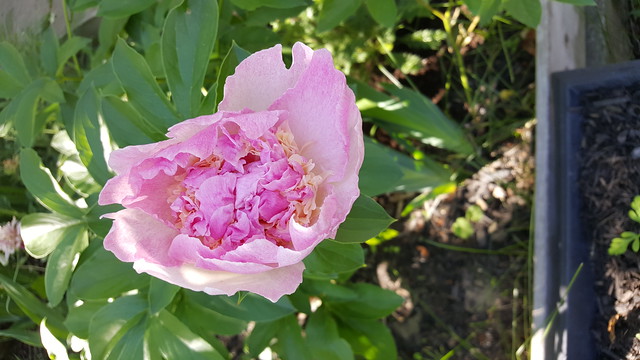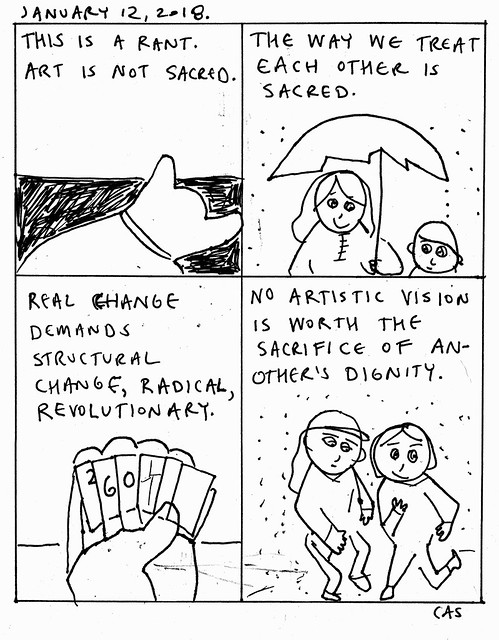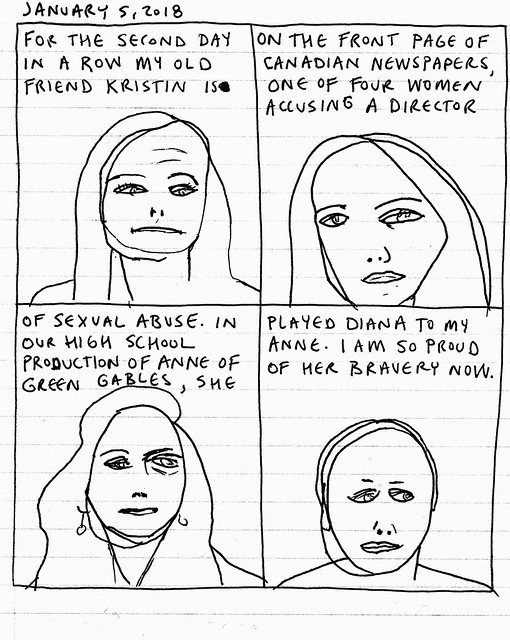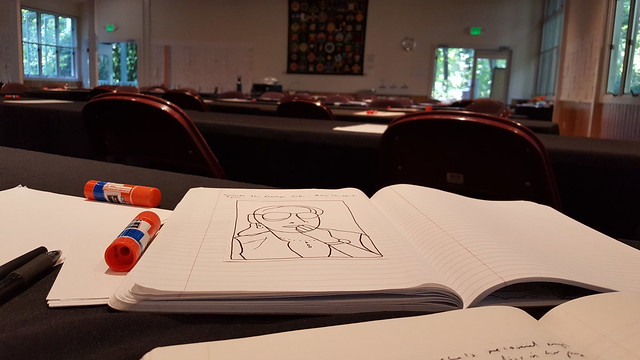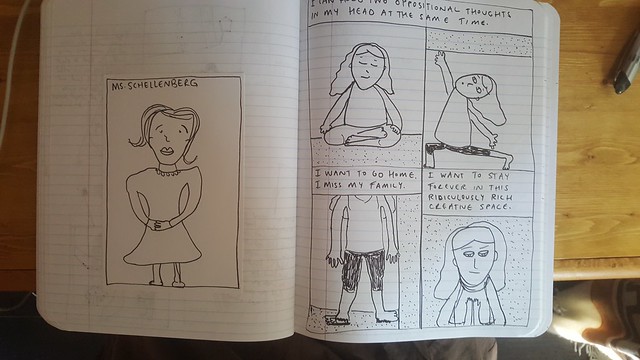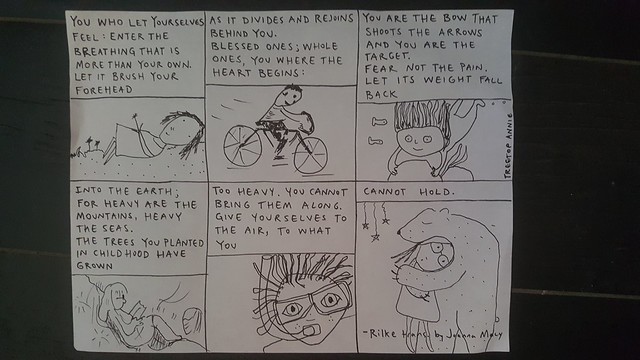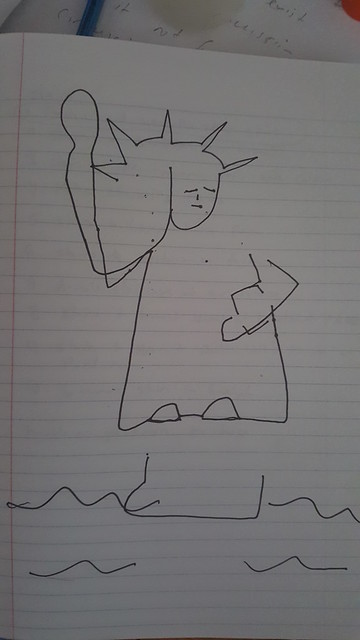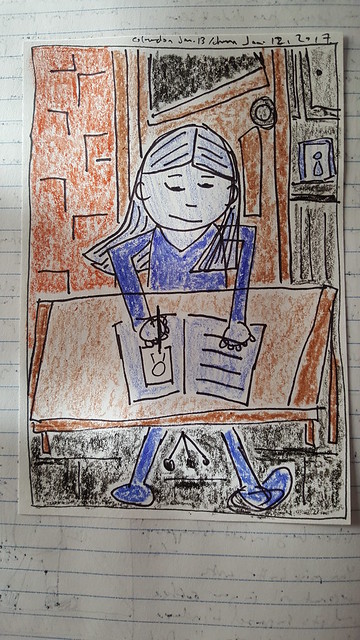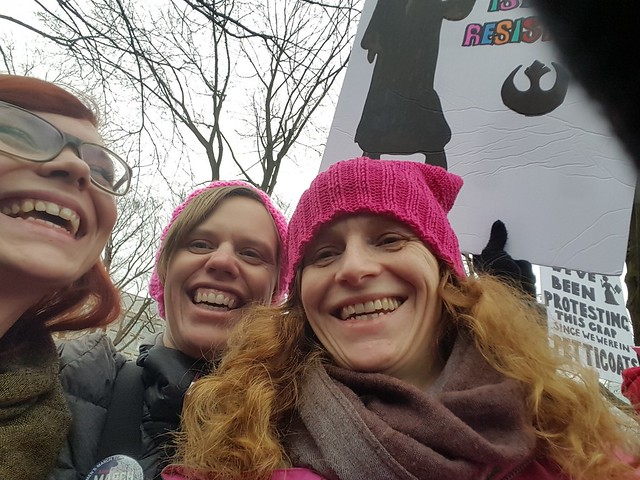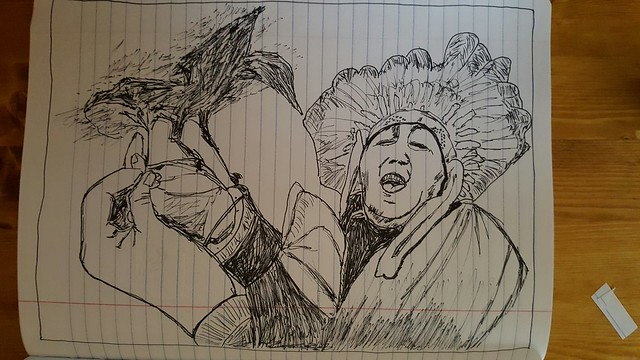Category: Politics
Tuesday, May 28, 2019 | Art, Big Thoughts, Organizing, Peace, Politics, Space, Spirit, Success, The X Page, Work, Writing |
 We did it! The X Page storytelling workshop culminated in a show in front of a sold-out audience, and the experience was so profound and meaningful that I don’t want to try to peel it apart. Suffice it say, we could feel the attention and support of the audience as the performance unfolded on stage; and throughout, I felt pure joy to be witnessing these unique personal stories told with such confidence and personality, and staged so brilliantly and effectively.
We did it! The X Page storytelling workshop culminated in a show in front of a sold-out audience, and the experience was so profound and meaningful that I don’t want to try to peel it apart. Suffice it say, we could feel the attention and support of the audience as the performance unfolded on stage; and throughout, I felt pure joy to be witnessing these unique personal stories told with such confidence and personality, and staged so brilliantly and effectively.
 I’ve been thinking about the material world. How we attach value to things, and how we measure value according to a concept so abstract it only exists because we’ve collectively agreed to believe in it — money. We seem to believe that for a thing to matter it has be material, its worth evaluated and determined on the open market. It’s a formulation that makes no sense to me at all. It seems to me, instead, that a material thing only has value when it is attached to meaning that is beyond its material form. Things don’t matter to us because of what they cost or what we can sell them for; things matter because they connect us to the ephemeral, to experiences, to memories, to images and stories.
I’ve been thinking about the material world. How we attach value to things, and how we measure value according to a concept so abstract it only exists because we’ve collectively agreed to believe in it — money. We seem to believe that for a thing to matter it has be material, its worth evaluated and determined on the open market. It’s a formulation that makes no sense to me at all. It seems to me, instead, that a material thing only has value when it is attached to meaning that is beyond its material form. Things don’t matter to us because of what they cost or what we can sell them for; things matter because they connect us to the ephemeral, to experiences, to memories, to images and stories.
 So much of what I do has no monetary value attached. Sometimes I get paid for my work; often I don’t. I have a new story in PRISM International that took four years to write. It’s a little over 1,000 words. I earned $90 for it. I was thrilled and happy to earn anything at all (literary magazines are run on a shoestring and a prayer, and I don’t take payment for granted). My point is not that I should have been paid more, or even that I should have been paid anything, but that the value of that story, to me, is unrelated to monetary compensation. It’s unrelated to material compensation of any kind. I wrote it to explore an idea. I loved working and reworking the words on the page. The language and structure were surprising. I felt rich every time I waded into its words. I felt fed. I felt alive.
So much of what I do has no monetary value attached. Sometimes I get paid for my work; often I don’t. I have a new story in PRISM International that took four years to write. It’s a little over 1,000 words. I earned $90 for it. I was thrilled and happy to earn anything at all (literary magazines are run on a shoestring and a prayer, and I don’t take payment for granted). My point is not that I should have been paid more, or even that I should have been paid anything, but that the value of that story, to me, is unrelated to monetary compensation. It’s unrelated to material compensation of any kind. I wrote it to explore an idea. I loved working and reworking the words on the page. The language and structure were surprising. I felt rich every time I waded into its words. I felt fed. I felt alive.
 I felt the same during our Tuesday night workshops. I felt the same during the performance on Sunday.
I felt the same during our Tuesday night workshops. I felt the same during the performance on Sunday.
I believe the value of the workshop was in the connections made, the space carved out for stories to be told and heard, and the hope and joy, and sense of belonging, that comes from working with others toward something bigger than yourself.
 I believe the value of my little story “Early Onset” is in its existence: strange and unsettling, and, to paraphrase the words of its main character, “terrible good, terrible good.”
I believe the value of my little story “Early Onset” is in its existence: strange and unsettling, and, to paraphrase the words of its main character, “terrible good, terrible good.”
We need to have enough material goods to live more than a life of struggle, survival, and trial. Beyond that, what we long for won’t be answered by the material. No prize, no public acknowledgement, no stack of cash will satisfy; quite the opposite. If we’re doing what we’re doing for material reasons, receiving material reward only makes us hungry for more, greedy for it, like addicts. Trust me; I know. I know what we’re longing for can’t be bought or sold. I know that meaning and purpose, belonging, are not commodities. I know that within us is always enough; and I know that we’re always seeking, nevertheless. We’re seeking to connect, even briefly, with mystery, with the unknown and unknowable, from whence we’ve come and to which we will return, carrying nothing.
We’re always becoming who we might be.
 I am a maker of experiences, not things. Even when I make things, it’s because they’re attached to experiences — stories, cartoons: my attempt to translate experience into a form accessible by someone else, its effect ephemeral, the tiniest vanishing ripple on the greatest lake. Enough. I am enough. You are enough. We are enough. And isn’t this life just terrible, terrible good?
I am a maker of experiences, not things. Even when I make things, it’s because they’re attached to experiences — stories, cartoons: my attempt to translate experience into a form accessible by someone else, its effect ephemeral, the tiniest vanishing ripple on the greatest lake. Enough. I am enough. You are enough. We are enough. And isn’t this life just terrible, terrible good?
xo, Carrie
Monday, Jun 18, 2018 | Big Thoughts, Politics, Spirit, Work, Writing |

This is a confusing time to be a writer, but maybe it’s just a confusing time to be a human being.
Everything is political. But I don’t think of myself as a political writer. Ideology is deadly to good writing, in my opinion and experience. As a writer, I value the ability to see many sides and perspectives. But now? Now? Is what I value as a writer valuable now?
My life is very pleasant. I live in Canada, which remains a safe country, especially for people like me, born with white skin of European background. I’ve received a solid education. I’m a home owner. My family and I have access to good health care. The public schools in our neighbourhood are awesome. My kids walk to and from their schools every day in relative safety (distracted/aggressive drivers being the main threat I fear). I have work that satisfies my spirit (often), leisure time to play in the back yard with my kids and ride my bike around the city, and time to volunteer many hours a week in order to satisfy my spirit even more. We drink clean water that comes from our taps. I have a washing machine in the basement. We eat really good food, most of it prepared at home. I share household chores with my husband, who has a flexible job that allows him to spend lots of time with our children, too. He supports my work, much of which doesn’t earn much money, recognizing it as a vocation.
I am living in privilege, a fortunate life. But at what cost? What does my security cost, what does my prosperity cost?
I live my life inside a bubble. I want everyone on earth to get to live inside a bubble of safety and security and prosperity and freedom. But that is not what is happening, nor does it seem to be the direction in which the world, and the balance of power, is turning. The leader of the United States, aka “the leader of the free world,” has little interest in freedom, aside from his own to increase his personal wealth and power by any means available. Trump is a president for oligarchs and oligarchs aren’t interested in democracy, because democratic states and institutions can’t pay bribes (or not very easily).
Few images occupy my mind, right now, more than children being separated from parents along America’s southern border. Does any other country on earth hold this policy toward asylum seekers? In Bangladesh, are Rohingya mothers separated from their children? In Lebanon, are Syrian refugees separated from their children? In Italy? In Germany? In Canada?
Take a moment to consider the chaos and terror these specific asylum seekers are fleeing. You may know that I have a personal connection to Nicaragua, which, though a dangerous country during the post-revolutionary 1980s, has for many years been considered safe, despite its extreme poverty. Neighbouring countries, including Honduras and El Salvador are wracked by gang violence and lawlessness, but Nicaragua seemed largely immune to these issues. No more. In the past two months, Nicaragua has slipped toward violence and repression, too; perhaps it’s been a long-time coming given that Daniel Ortega, the president during the 1980s, returned to power in the 2000s and changed the constitution to ensure he’d never have to leave. During his time in office, he’s amassed a personal fortune, never a good sign. Corruption inevitably leads to instability. And those who cling to their power illegitimately understand instinctively that their survival depends on repression, at all costs. So when protests began in April, the government cracked down. Hard. (This is the situation as I understand it, gleaned from the articles and reports I’ve read, although there could be other actors involved and the issues far more tangled and complex.) For those whose daily lives are caught up in the nightmare of random violence, it doesn’t really matter who’s to blame. Nicaragua, right now, is a scary place to be — random shootings by police and paramilitary groups, protestors arrested without due process, extra-judicial killings, a journalist shot while live-streaming a report, neighbourhood blockades, arson, fear all around.
How easily the world tips into chaos.
And people flee chaos, when they can. They leave their lives behind, maybe in hope, definitely out of desperation. These are asylum seekers, refugees.
How easily social norms are broken, replaced by new norms. We can get used to anything, we humans. There are people right now, hired to process and separate children from parents on the southern border of the United States. These people are doing a job. Somehow, they’ve told themselves that what they’re doing is normal and acceptable, perhaps even desirable, perhaps even the right thing to do.
Human beings throughout history have done this — normalized evil acts, told themselves they were doing the right thing, dehumanized the people they traumatized, abused, even killed. In Canada, somehow many people found it acceptable to separate First Nations children from their parents, to house them far away from home in residential schools, to punish them for speaking their language, to make this traumatic cruelty the law. And doesn’t it continue, in some form or another, even now?
All of this. Too much.
What world do I live in? I’m in a bubble.
But as witness to what’s happening outside of my bubble, my hands are not clean. The tools for our manipulation grow ever more powerful and many find it difficult to know what to believe or who to trust. The further our trust erodes, in our communities and leaders, the easier we are to manipulate. How to stay wise and informed in this era? How to express outrage, how to dig in my heels and refuse to accept what’s happening? How to be a useful bystander? Or not a bystander at all? How to be brave? How to make the world safer, kinder, more open?
Does the arc of the moral universe bend toward justice?
What about the arc of my own tiny slice of history — does it bend toward justice? Forward and back, forward and back, we progress, we slip, we progress, we slip. Our life spans are brief and our memories flawed. We are distractible, confused, contradictory. We react. We comfort ourselves with lies and half-truths. We embrace denial. We focus on what’s before us. We cling to what we’ve got. The road to hell is paved with good intentions — that’s true too. Even when we’re trying to help, we get so much wrong.
Small, kind, hopeful acts. All I’ve got. The vital potential of art. All I’ve got. My own two hands. All I’ve got. My imagination. All I’ve got. The ability to listen. All I’ve got. To change. All I’ve got. To remember. To care. To witness. To record. All I’ve got.
xo, Carrie
Friday, Jan 12, 2018 | Art, Feminism, Fire, Politics, Spirit, Stand |

This is a rant. Art is not sacred. The way we treat each other is sacred. Real change demands structural change, radical, revolutionary. No artistic vision is worth the sacrifice of another’s dignity.
Today on our early morning run, Heather and I talked about structure. How humans hew to structure, even if it’s not serving us well, because that is our nature. Real change demands structural change; true on scales both macro and micro, societal and individual. I wish I had the tools and knowledge and education to do something that would support wide and deep systemic change. Or maybe that’s not how systemic change occurs. Maybe it’s more radical and revolutionary. I believe in policy, and the power of policy to affect change, but unless it’s applied, policy is worthless and sometimes worse than worthless — because it provides a mask to corruption while pretending to hold the system to account. Why didn’t they report earlier? Why are they coming out now? They should have gone to police. This is a case for the courts, not the court of public opinion. It’s nothing but unsubstantiated gossip. Fill out the paperwork, go through the proper channels, and we’ll get back to you.
Yeah, this is a rant.
This morning, I heard a snippet from a radio interview: a woman arguing that the penalties against the former director of Soulpepper theatre in Toronto were too harsh — He built the company! His artistic genius! (Full disclosure, one of the complainants in the civil case against him was a high school friend, though we haven’t been in touch for many years.) To the woman on the radio, I raged: You’re arguing that artistic vision is worth the sacrifice of people’s safety. You would protect a man whose behaviour at work harmed people — because he was a good fundraiser??? Because the art was good??? This is skewed morality.
Art is not sacred. The arts are not sacred.
The way that we treat each other as human beings is sacred, or should be.

For the second day in a row my old friend Kristin is on the front page of Canadian newspapers, one of four women accusing a director of sexual abuse. In our high school production of Anne of Green Gables, she played Diana to my Anne. We had so much fun. Kristin absolutely sparkled with wit and comedic talent. I am so proud of her bravery now.
I have a theory. Power may indeed corrupt and absolute power may indeed corrupt absolutely, but many who seek power are already corrupt, particularly in systems in which corruption, in its many forms, is rewarded: think manipulation, harassment, bullying, and other norm-flaunting, disrespectful, selfish and narcissistic behaviour. Those more inclined toward self-reflection, those who don’t want to harm others for their own profit (or be harmed), who don’t want to lie and self-inflate and backstab and cheat to “play the game” are weeded out of the system, deemed weak, losers, failures. The powerful believe their behaviour is normal.
Maybe we all do — until we don’t.
Let’s say that time is now. Let’s find ways to circumvent the system until the system changes.
I repeat: Art is not sacred. Neither are artists. The artistic process has never needed to be destructive, harmful, cruel, violent, vindictive, ugly, competitive, or vicious in order for good art to exist. Don’t be fooled by the propaganda.
Bottom line: If you’re hurting people in the process of making your art, you’re doing it wrong. You never earn the right to be an asshole. (Also, side note: nobody needs to see your penis.)
xo, Carrie
Monday, Aug 21, 2017 | Adventure, Art, Big Thoughts, Lynda Barry, Peace, Politics, Spirit, Stand, Summer, Teaching, Work, Writing |

A person wonders whether she can carry home the things she learned, whether transformation in a radically different setting from home is sustainable. A person yearns to be the self she was while she was away. But a person knows, coming home is coming back to a crowd of needs waiting to be met. Even the house needs her. A person has so many loves. Loves are obligations but loves are also earned and cherished and what would a person write about were she to have no loves to tend to?

I can hold two oppositional thoughts in my head at the same time. I want to go home. I miss my family. I want to stay forever in this ridiculously rich creative space.
What I’m trying to say is that I’m home from Omega, in upstate New York, home from the Lynda Barry + Dan Chaon workshop, a 5-day intensive experience in a summer-camp-like setting, with an amazing yoga class every morning, ultra-healthy vegetarian/vegan food served three times daily, virtually no responsibilities, no chores, and perhaps most critically, almost no emotional labour except for the work that poured onto the page. My mind was uncluttered and immediately more open to images and connections. Will I be able to be joyful, I wondered on the evening we arrived, will my spirit find lightness? Is it still possible? I had my answer in less than a day: yes. It was so easy, under the circumstances, to be playful, attuned to what’s under the surface, easy to meet any challenge.
Writing isn’t easy, but it’s enjoyable, said Lynda Barry. She likened it to seeing runners go by in the middle of the day, and you can tell they’re enjoying it, but you never once think, hey, that looks easy. Writing — it’s the same. What this week kindled in me is a fire for the writing. For the possibility in writing, which is seductive to someone who entertains as rich a fantasy life as I do.
After Lynda Barry said goodbye, on the last morning, Dan Chaon, with whom she co-taught this workshop, helped us debrief our experience. Someone asked him about writing to an audience, and his answer had me in tears. It must have answered something very deep inside me, something neglected, lost, forgotten. I’m writing to my peers, he said. I’m writing to the writers I love, my kindred spirits.
I’m writing to my peers.
Am I capable of thinking of the writers I admire as peers? How does it change my mind and body to think: I am writing to Helen Oyeyemi. I am writing to Rumi. I am writing to Eden Robinson. I am writing to Ann Patchett, to Rilke, to Mavis Gallant, to Chimamanda Ngozi Adichie, to Mary Oliver. Feelings of love and awe and excitement come over me. I am writing so my work will speak to their work. In Lynda Barry’s classroom, we show our drawings to each other, but we also show our drawing to each other’s drawings. It sounds flaky, but it’s a reminder: this work, once created, lives a life separate from our own.

On Wednesday, I walked the labyrinth on campus, and spent a lot of time writing — my own writing, not guided writing. It was late in the evening. I decided to do one last project before snack and bed, something I’d been wanting to do for awhile: make the Rilke poem I’ve memorized and repeat often into a little cartoon. For the pictures, I looked at my peers’ attendance cards, hanging from the walls, and I chose images that seemed to speak to the words in the panel, and I copied them as best I could. All the drawings are drawings I admired, made by hands and minds I did not know. Then I taped the cartoon to the classroom wall and left it there for the rest of the week.
It was the kind of space that makes a person want to leave behind gifts. But on the last day, I untaped the cartoon from the wall and brought it home. It was the kind of space that makes a person want to believe she can bring what she found there home.
I know we were in another world, a bubble of creative vibes and chickpea scramble, but what was happening in the world was with us too, if at a remove. I mean, there we were in the United States of America during the week when the president spoke out in support of Nazis. There was pain and confusion in that classroom too. This feels like a crisis, said Lynda Barry, doesn’t it feel like a crisis? And everyone said yes. We are facing a crisis. What are we going to do about it? What are we going to do?

She didn’t have an answer. She just had us knuckle down and draw ourselves as a dejected Batman, draw the statue of Liberty with our eyes closed, make a map of a familiar walking path. And then she made us show our neighbour.
xo, Carrie aka Treetop Annie
Tuesday, Jan 31, 2017 | Big Thoughts, Feminism, Peace, Politics, Spirit, Stand, Word of the Year |
 I don’t know if this is a good state in which to begin a blog post, while sobbing over today’s newspaper, but I’ve been silent because I don’t know where to begin, not because I have nothing to say, so I will begin here.
I don’t know if this is a good state in which to begin a blog post, while sobbing over today’s newspaper, but I’ve been silent because I don’t know where to begin, not because I have nothing to say, so I will begin here.
This post is written in response to the murder of six Canadian men in a Quebec mosque. It is written in response to Trump’s ban from the US on refugees and people born in seven countries with largely Islamic populations (perhaps temporary, but we shall see; extreme policies are often floated as temporary measures only to become slyly entrenched).
This post is also written in response to the outpouring of peaceful protest that began the day after Trump’s inauguration, less than two weeks ago, and continues today. I was fortunate enough to march in Toronto, in the women’s march, and although I was glad to share the moment with my sister, sister-in-law, and friends, I felt mostly sombre: I thought, this is just the start.
 This morning, as soon as the house was emptied of kids, I began to weep, reading the stories of the men who were killed in Quebec City. Ordinary people who lived ordinary Canadian lives, and who believed in ordinary Canadian peace. The attack feels like a betrayal of Canada’s promise. We want to welcome refugees and immigrants. But bigots live here too, violence lives here too.
This morning, as soon as the house was emptied of kids, I began to weep, reading the stories of the men who were killed in Quebec City. Ordinary people who lived ordinary Canadian lives, and who believed in ordinary Canadian peace. The attack feels like a betrayal of Canada’s promise. We want to welcome refugees and immigrants. But bigots live here too, violence lives here too.
I am part of a neighbourhood group who has sponsored a refugee family from Syria; they arrived in December. I am fortunate enough to be quite closely involved in their lives here in Canada, helping with ESL, and also, I hope, offering my friendship. They are a beautiful young family, and their project is so enormous — moving to our cold country in winter, speaking no English, two small children, knowing no one — it sometimes overwhelms me to think about it. Yet they appear completely willing to embrace their new reality. I want them to thrive here.
I want Canada to be the promised land, where people thrive. But it isn’t always, is it.
Think about this land. The literal land over which I’m walking. There were people living on this land long before my ancestors (or a branch of my ancestors) settled here as farmers. These people were betrayed by the newcomers, by us, by Canada; not only was the land parcelled up and sold, but for almost a hundred years, residential schools tried to eradicate their cultures, to white-wash and convert and also to outright destroy, a history I learned nothing about in my Canadian education, a history running parallel to the stories we learned, obscured, buried. And this history isn’t past, it continues to inflect our present. When we invite newcomers to Canada, we can’t pretend this isn’t, also, our story: bigotry, violence, destruction, greed.
This might sound small, but I’ll tell you what guts me — the thought that my new friend, new to Canada, could be harassed for wearing her headscarf. I know this could happen — I know this does happen. It happens because of Othering.
I want Canada to be a place where Othering does not happen, where we don’t decide we know everything we need to know about a stranger based merely on how we’ve grouped him or her: according to race, class, gender, religion, sexual orientation, according to the flimsiest of superficial evidence, according to our own biases and blindness, according to our lack of imagination and empathy. I want Canada to be a place where strangers are welcomed because they have the opportunity to become known, for being themselves, complicated human selves.
Trump’s executive orders are Othering a huge swath of humanity: refugees, Mexicans, Muslims. Be afraid of these people, he is saying, they are not like us.
But they are. They are just like us. They are human. We are all human.
If we forget that, if we erase that, if we ignore that, we are doomed to division, to fear, to hatred, to war.
I am looking for hope. Hope seems to me something that you do, and by doing make real. So I’m looking for hope by spending a few mornings a week with a woman who was uprooted from her home by war, by designing and sharing curriculum that may inspire others to create, by coaching youth soccer, by walking and talking with friends, by getting up early to write, by marching, by making music, by meditating, by praying.
I keep looking for more ways to hope. Tell me yours, please.
xo, Carrie
Thursday, Jan 26, 2017 | Art, Big Thoughts, Politics, Spirit, Stand |

“The intuitive mind is a sacred gift and the rational mind is a faithful servant. We have created a society that honours the servant but has forgotten the gift.” – Albert Einstein
Page 5 of 10« First«...34567...10...»Last » 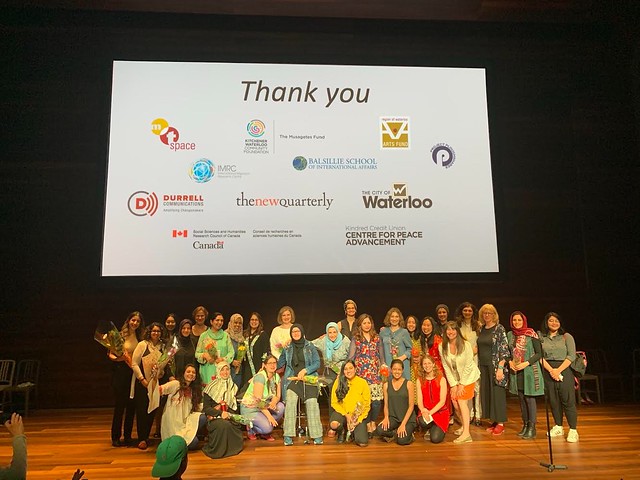 We did it! The X Page storytelling workshop culminated in a show in front of a sold-out audience, and the experience was so profound and meaningful that I don’t want to try to peel it apart. Suffice it say, we could feel the attention and support of the audience as the performance unfolded on stage; and throughout, I felt pure joy to be witnessing these unique personal stories told with such confidence and personality, and staged so brilliantly and effectively.
We did it! The X Page storytelling workshop culminated in a show in front of a sold-out audience, and the experience was so profound and meaningful that I don’t want to try to peel it apart. Suffice it say, we could feel the attention and support of the audience as the performance unfolded on stage; and throughout, I felt pure joy to be witnessing these unique personal stories told with such confidence and personality, and staged so brilliantly and effectively.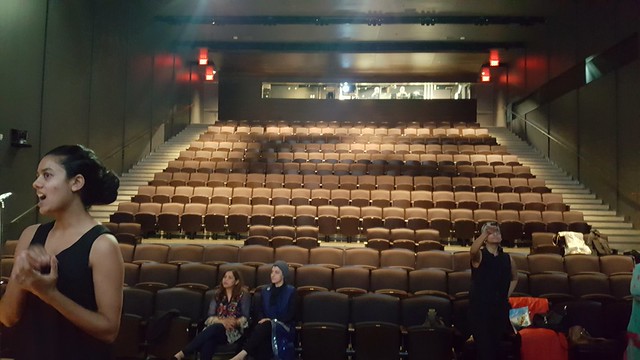 I’ve been thinking about the material world. How we attach value to things, and how we measure value according to a concept so abstract it only exists because we’ve collectively agreed to believe in it — money. We seem to believe that for a thing to matter it has be material, its worth evaluated and determined on the open market. It’s a formulation that makes no sense to me at all. It seems to me, instead, that a material thing only has value when it is attached to meaning that is beyond its material form. Things don’t matter to us because of what they cost or what we can sell them for; things matter because they connect us to the ephemeral, to experiences, to memories, to images and stories.
I’ve been thinking about the material world. How we attach value to things, and how we measure value according to a concept so abstract it only exists because we’ve collectively agreed to believe in it — money. We seem to believe that for a thing to matter it has be material, its worth evaluated and determined on the open market. It’s a formulation that makes no sense to me at all. It seems to me, instead, that a material thing only has value when it is attached to meaning that is beyond its material form. Things don’t matter to us because of what they cost or what we can sell them for; things matter because they connect us to the ephemeral, to experiences, to memories, to images and stories. So much of what I do has no monetary value attached. Sometimes I get paid for my work; often I don’t. I have a new story in PRISM International that took four years to write. It’s a little over 1,000 words. I earned $90 for it. I was thrilled and happy to earn anything at all (literary magazines are run on a shoestring and a prayer, and I don’t take payment for granted). My point is not that I should have been paid more, or even that I should have been paid anything, but that the value of that story, to me, is unrelated to monetary compensation. It’s unrelated to material compensation of any kind. I wrote it to explore an idea. I loved working and reworking the words on the page. The language and structure were surprising. I felt rich every time I waded into its words. I felt fed. I felt alive.
So much of what I do has no monetary value attached. Sometimes I get paid for my work; often I don’t. I have a new story in PRISM International that took four years to write. It’s a little over 1,000 words. I earned $90 for it. I was thrilled and happy to earn anything at all (literary magazines are run on a shoestring and a prayer, and I don’t take payment for granted). My point is not that I should have been paid more, or even that I should have been paid anything, but that the value of that story, to me, is unrelated to monetary compensation. It’s unrelated to material compensation of any kind. I wrote it to explore an idea. I loved working and reworking the words on the page. The language and structure were surprising. I felt rich every time I waded into its words. I felt fed. I felt alive.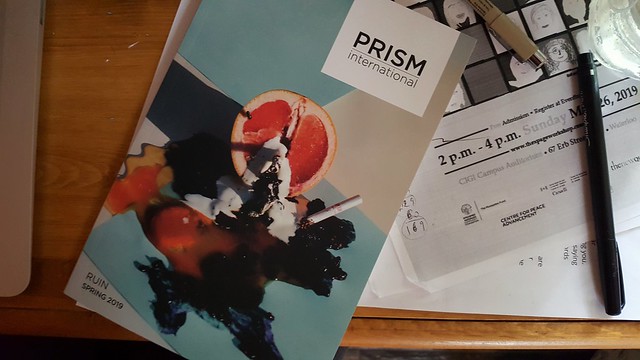 I felt the same during our Tuesday night workshops. I felt the same during the performance on Sunday.
I felt the same during our Tuesday night workshops. I felt the same during the performance on Sunday. I believe the value of my little story “Early Onset” is in its existence: strange and unsettling, and, to paraphrase the words of its main character, “terrible good, terrible good.”
I believe the value of my little story “Early Onset” is in its existence: strange and unsettling, and, to paraphrase the words of its main character, “terrible good, terrible good.”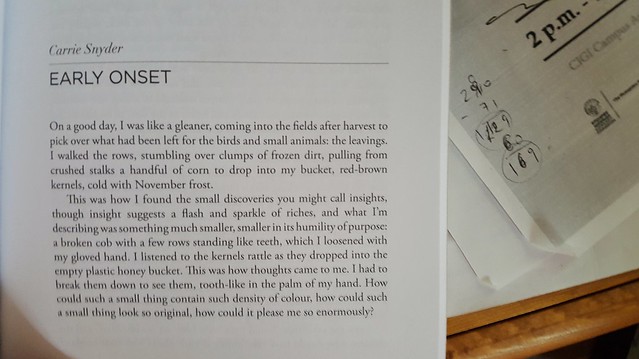 I am a maker of experiences, not things. Even when I make things, it’s because they’re attached to experiences — stories, cartoons: my attempt to translate experience into a form accessible by someone else, its effect ephemeral, the tiniest vanishing ripple on the greatest lake. Enough. I am enough. You are enough. We are enough. And isn’t this life just terrible, terrible good?
I am a maker of experiences, not things. Even when I make things, it’s because they’re attached to experiences — stories, cartoons: my attempt to translate experience into a form accessible by someone else, its effect ephemeral, the tiniest vanishing ripple on the greatest lake. Enough. I am enough. You are enough. We are enough. And isn’t this life just terrible, terrible good?
